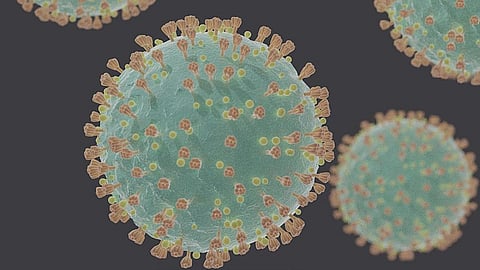
- Topics
- Feature
- Opportunities & Events
- About
- Hindi Portal
- Data
- Topics
- Feature
- Opportunities & Events
- About
- Hindi Portal
- Data

Sharing the right information with rural communities is emerging as an important need in tackling the COVID-19 pandemic. The unavailability of content in local dialects and regional languages is posing a big challenge to NGOs that are working in rural areas to spread awareness. Traditional forms of communication like face to face meetings, posters, handouts and wall paintings are also not possible during the lockdown making it harder for them to reach rural households.
The Tata Trusts are reaching out to 1.2 million rural households across 21 states through a twelve-day campaign to spread awareness on COVID-19. We spoke to Divyang Waghela, Head - Tata Water Mission and Deepshikha Goel Surendran, Head - Communications Tata Trusts to understand their approach.
The Tata Trusts have created almost 200 videos in around 22 languages [
1
] including dialects like Santhali, Mundari, Kutchi (Gujarat) and Koborok (Tripura)). All of them are available in the playlist here
"The first concern was to ensure that communities access the right information. This information also has to go to them from people they trust.”, says Divyang. To do this, they first identified what information to share. There are 6 main messages identified in consultation with health experts that are being shared now. These include simple messages on hand washing social distancing, following respiratory etiquette, relying on the right source of information, early recognition of COVID-19 and also protocols for self-quarantine for returning migrant workers.
“The Trusts have extensive outreach to rural communities across the country through community institutions and Community Resource Persons (CRPs)/ front line workers. We decided to use these existing institutional structures to reach out to rural communities, even in extremely remote locations in the country” added Divyang. The Trusts have trained more than 500 master trainers who have become process holders for dissemination of these communication assets and oversee the implementation process. The 12 day campaign allows a message to be shared every alternate day through multiple digital mediums ensuring people are not bombarded with information.
“Rural farmers rely on us as trusted sources of information for farming practices”, says Deepshikha. “This trust is key to acceptance of our communication on COVID-19”, she adds.
Deepshikha also explains how they can reach everyone in the communities they work in. “Having a diversified dissemination strategy that spans audio, video, animation videos, text messages, infographics, push notifications on apps such as mKrishi, IVRs through Gram Vaani (technology platform) has been critical. In a few states, community radio systems have also been used.” she says.
Celebrities with national and regional fame like Harbhajan Singh, Nana Patekar, Sonali Kulkarni, Yusuf Pathan, Malini Awasthi, Atul Kulkarni, Ila Arun etc. have also rallied around the cause and lent their voices and videos to spread the right messages.
“The Trusts local partner organisations also play a critical role in enhancing the outreach. More than 40 partners have collaborated with the Trusts and started disseminating messages to geographies they operate in” added Divyang.
Gathering feedback from the people is a part of their awareness campaign. “Feedback is critical, because it’takes a one-sided awareness campaign and makes it a conversation”, says Deepshikha. Some of their messaging has feedback loops built in to them. Their network of Master Trainers are also reaching out to the communities for conversations and getting their feedback.
“Feedback is not only around content quality, we also find out whether they will practice what they are hearing and if they will share it with their contacts”, says Deepshikha. Talking to the people also provides insight into the concerns people have, in turn driving new content creation.
Divyang and Deepshikha emphasise that the content created is issued in public interest by Tata Trusts and is for public good. They urge everyone working in COVID-19 relief to access and use it. They are also adding content to their playlist and encouraging practitioners to keep coming back to check if what they need is available.
[